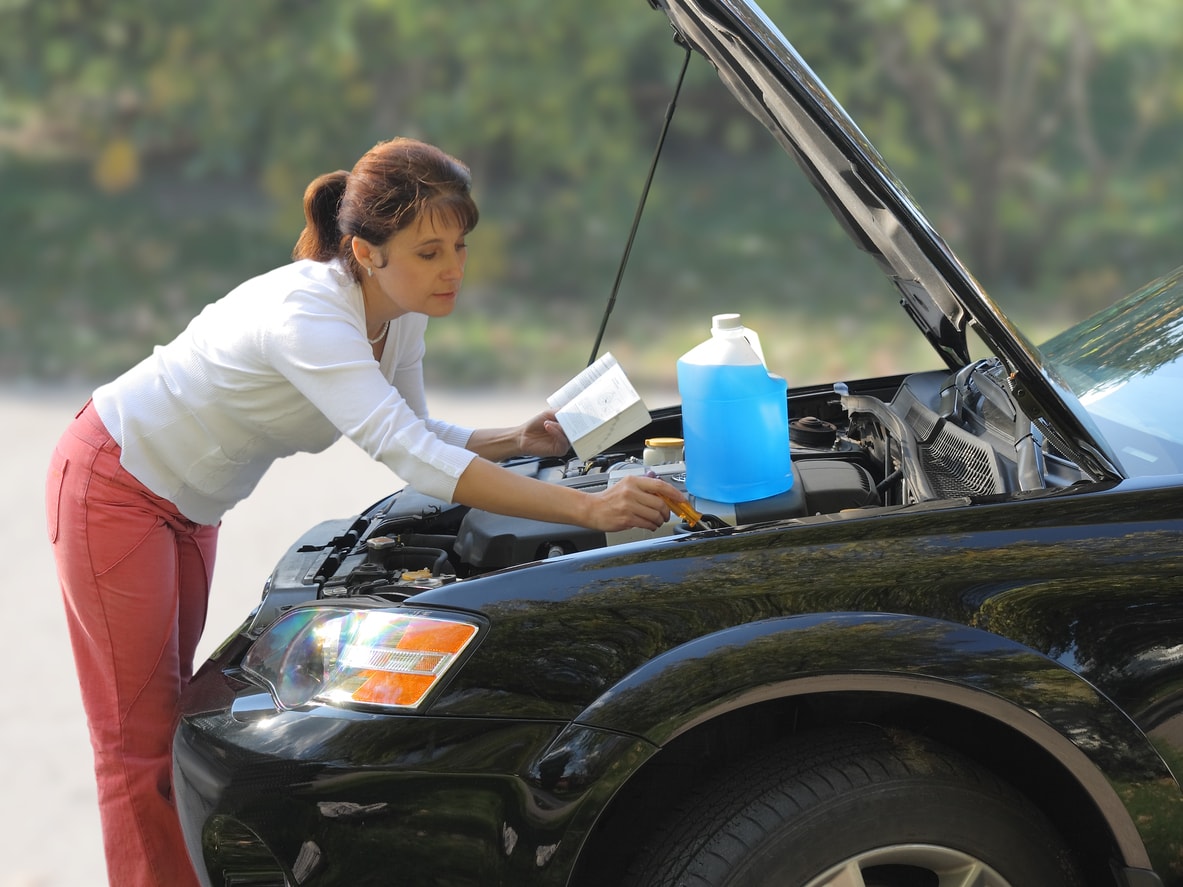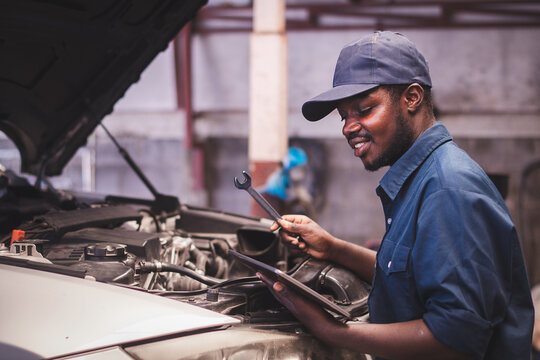All Categories
Featured
A solid vehicle repair work warranty can provide tranquility of mind, knowing that if something goes incorrect after the repair, you're covered. Comprehending what's generally covered under vehicle repair service warranties is important for guaranteeing you're effectively secured.
OEM (Original Devices Supplier) Parts: Lots of service center use OEM parts, which are made by the producer of your car. These components typically include a longer service warranty than aftermarket parts. It's vital to validate that the service warranty covers the certain component that was changed and the duration of protection.
![]()
Aftermarket Parts: While aftermarket parts might be much more inexpensive, the guarantee terms can differ. Some repair work shops might offer a service warranty on aftermarket components, but maybe limited to a shorter period or call for additional documentation from the part's maker.
Restricted Time or Mileage: Labor insurance coverage is generally supplied for a certain duration, such as 1 month, 90 days, or also a year, relying on the shop and kind of repair work. Some warranties may extend labor protection based upon mileage, such as up to 12,000 miles or 18 months.
Problems for Labor Protection: Keep in mind that service warranties generally cover labor costs only if the failing results from an issue with the workmanship or components, not if the problem is triggered by outside elements, like mishaps or overlook.
Typical Failures: Handiwork guarantees frequently cover problems like improper installment, missed action in the repair work process, or the failure of parts that were not properly adjusted.
Period of Guarantee: The length of the handiwork warranty can differ but is commonly consisted of for a set duration, such as twelve month or as much as 12,000 miles.
![]()
Tear and use: Standard guarantees usually don't cover wear-and-tear things, such as brake tires, pads, or belts, which naturally weaken in time with usage.
Crash Damage: If the vehicle's problem is created by an accident or outside variable, such as vandalism, the service warranty most likely won't cover the repair.
Neglect or Abuse: Many service warranties omit protection for damage caused by forget, poor upkeep, or abuse of the automobile. For example, missing routine oil changes or neglecting a check engine light can void the warranty.
Final thought. An auto repair service warranty provides important protection for both parts and labor, offering you tranquility of mind that any type of concerns emerging from the repair work will be cared for. Insurance coverage normally includes components, labor, and craftsmanship, yet there are limitations such as exclusions for wear and damage or tear brought on by exterior aspects. Always check the details of the guarantee with the service center, including the period, what's covered, and any type of exclusions. This way, you can make a notified choice and stay clear of unforeseen expenses later on.
- Components Insurance coverage. Many automobile fixing service warranties mostly cover the parts that are changed or repaired. This means if the part that was set up fails within the service warranty duration, the service center will usually replace or repair it at no added fee.
OEM (Original Devices Supplier) Parts: Lots of service center use OEM parts, which are made by the producer of your car. These components typically include a longer service warranty than aftermarket parts. It's vital to validate that the service warranty covers the certain component that was changed and the duration of protection.

Aftermarket Parts: While aftermarket parts might be much more inexpensive, the guarantee terms can differ. Some repair work shops might offer a service warranty on aftermarket components, but maybe limited to a shorter period or call for additional documentation from the part's maker.
- Labor Insurance coverage. Along with components, auto repair warranties frequently cover the labor associated with the repair service. If the work done on your vehicle is faulty or does not fix the trouble, the warranty might cover the cost of labor to fix the issue.
Restricted Time or Mileage: Labor insurance coverage is generally supplied for a certain duration, such as 1 month, 90 days, or also a year, relying on the shop and kind of repair work. Some warranties may extend labor protection based upon mileage, such as up to 12,000 miles or 18 months.
Problems for Labor Protection: Keep in mind that service warranties generally cover labor costs only if the failing results from an issue with the workmanship or components, not if the problem is triggered by outside elements, like mishaps or overlook.
- Handiwork Guarantee. A workmanship guarantee makes sure that the repairs were finished properly. If the repair fails due to inadequate handiwork, the guarantee may cover the cost of fixing it. This is especially important for complex fixings, like engine work or transmission substitutes, where the high quality of the labor is critical to the car's performance.
Typical Failures: Handiwork guarantees frequently cover problems like improper installment, missed action in the repair work process, or the failure of parts that were not properly adjusted.
Period of Guarantee: The length of the handiwork warranty can differ but is commonly consisted of for a set duration, such as twelve month or as much as 12,000 miles.

- Exemptions and Limitations. While warranties offer significant protection, there are usually limitations or exemptions to be mindful of.
Tear and use: Standard guarantees usually don't cover wear-and-tear things, such as brake tires, pads, or belts, which naturally weaken in time with usage.
Crash Damage: If the vehicle's problem is created by an accident or outside variable, such as vandalism, the service warranty most likely won't cover the repair.
Neglect or Abuse: Many service warranties omit protection for damage caused by forget, poor upkeep, or abuse of the automobile. For example, missing routine oil changes or neglecting a check engine light can void the warranty.
- Transferability. Some vehicle repair guarantees are transferable, suggesting if you market your automobile, the brand-new owner may still be covered under the guarantee. This can boost the resale value of the automobile. It is necessary to confirm with the service center whether the service warranty can be transferred and if any particular steps need to be taken to do so.
- Roadside Aid and Various Other Benefits. Some vehicle repair shops and dealerships supply prolonged advantages with their warranties, such as totally free towing, roadside help, or rental vehicle protection while the vehicle is being repaired. These bonus are not always consisted of, so make certain to ask about them when reviewing guarantee options.
Final thought. An auto repair service warranty provides important protection for both parts and labor, offering you tranquility of mind that any type of concerns emerging from the repair work will be cared for. Insurance coverage normally includes components, labor, and craftsmanship, yet there are limitations such as exclusions for wear and damage or tear brought on by exterior aspects. Always check the details of the guarantee with the service center, including the period, what's covered, and any type of exclusions. This way, you can make a notified choice and stay clear of unforeseen expenses later on.
Latest Posts
How Regular Auto Maintenance at Montclare Auto Repair Reduces Costs
Published en
1 min read
Explore Limited-Time Auto Repair Specials in Chicago at Montclare Auto Repair
Published en
1 min read
How Chicago Drivers Select Montclare Auto Repair for Trusted Service and Significant Savings
Published en
1 min read
More
Latest Posts
How Regular Auto Maintenance at Montclare Auto Repair Reduces Costs
Published May 30, 25
1 min read
Explore Limited-Time Auto Repair Specials in Chicago at Montclare Auto Repair
Published May 28, 25
1 min read
How Chicago Drivers Select Montclare Auto Repair for Trusted Service and Significant Savings
Published May 27, 25
1 min read